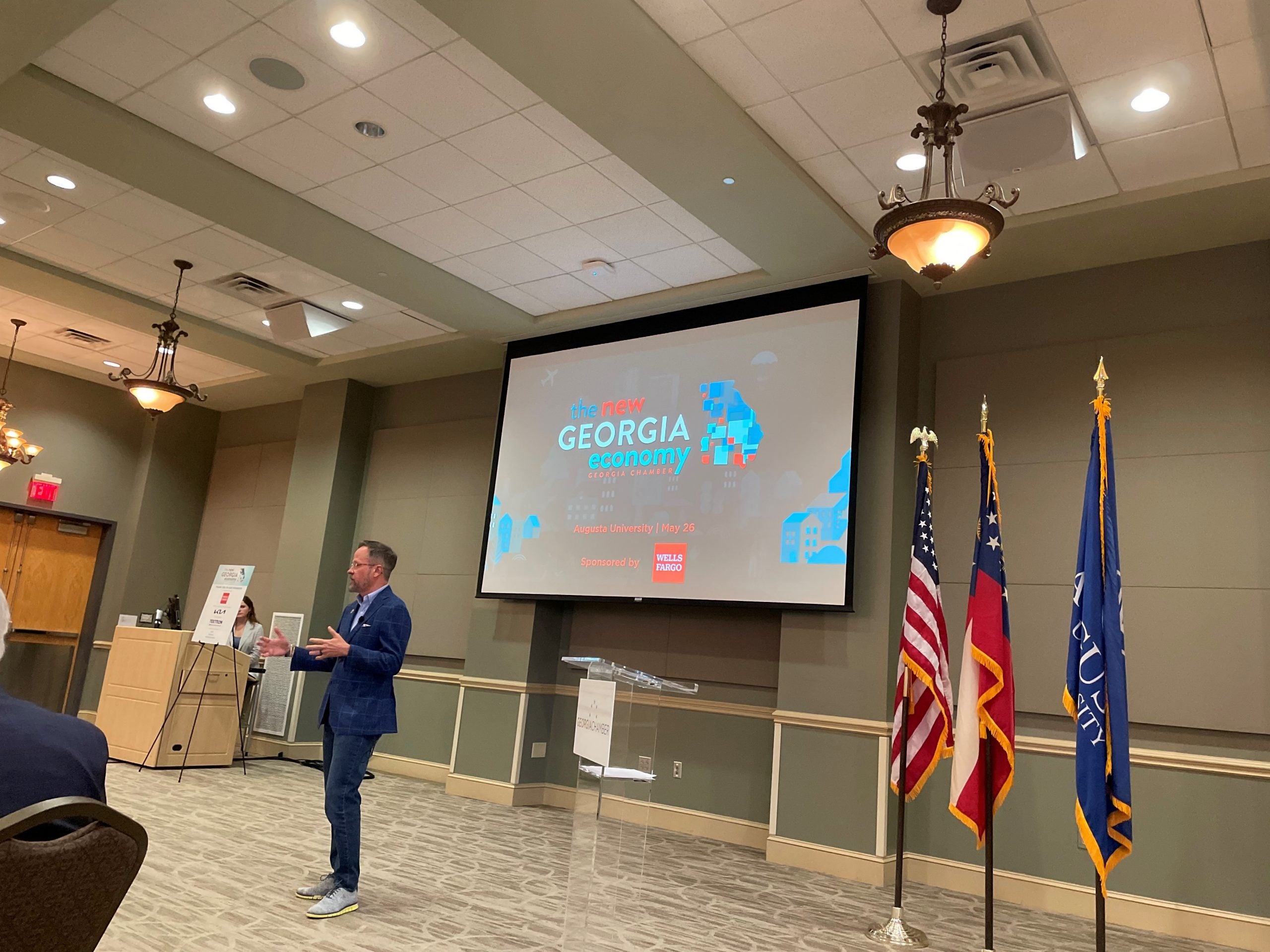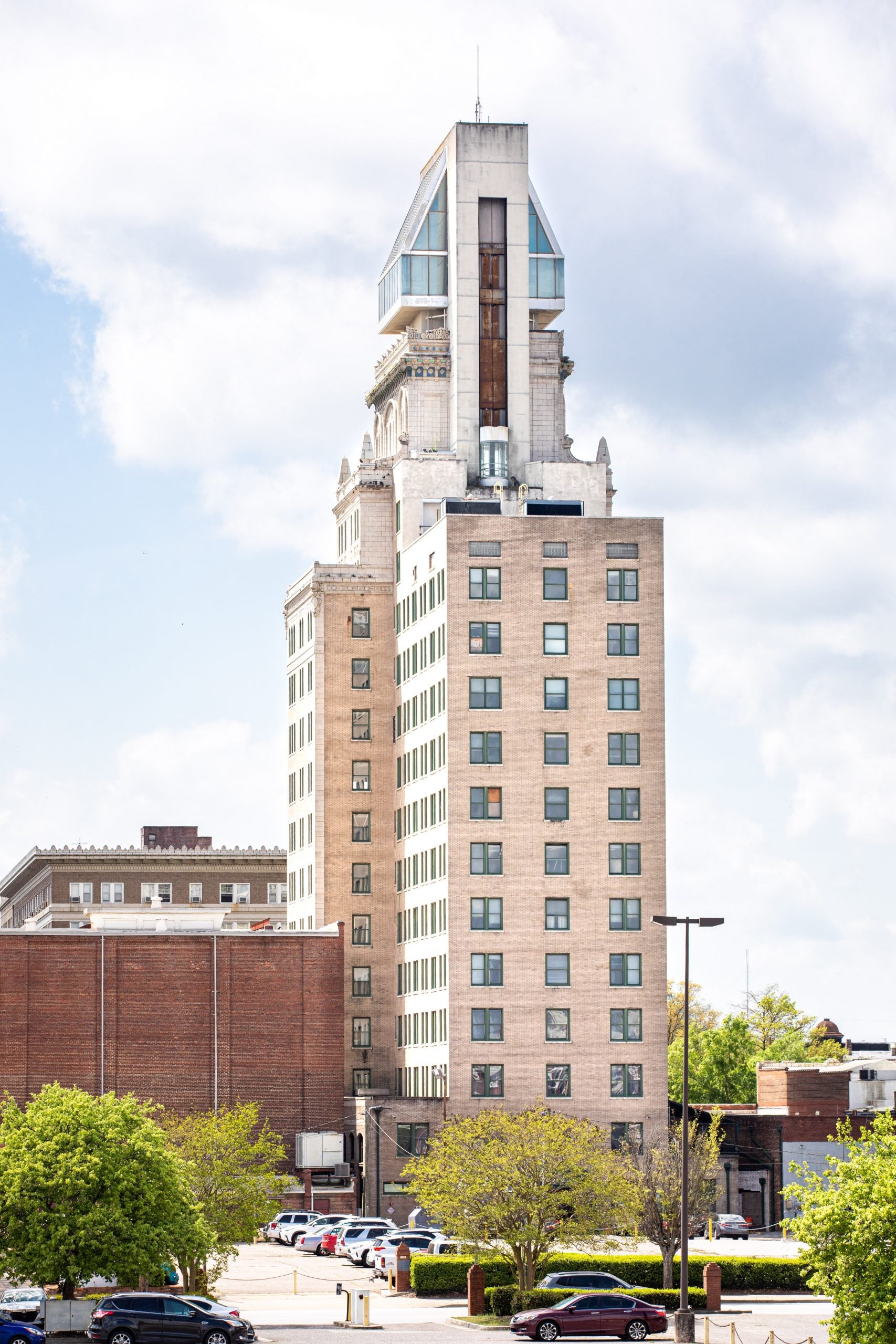The Georgia Chamber of Commerce held its regional meeting at Augusta University on Thursday, part of its “New Georgia Economy Tour” consisting of live events throughout the state addressing economic issues and offering planning strategies for businesses in Georgia.
“We have had record economic development in the state of Georgia for the last 36 months,” said Chris Clark, President and CEO of the Georgia Chamber, stressing the state’s many development announcements in 2020, in fields ranging from manufacturing to cybersecurity, at the height of a pandemic. “And we were like, ‘Well, that’s good. We’re never going to do that again.’ And then we did it again. And then in ‘22 so far, we’re on pace for another record year.”
A crowd slowly gathered in the Dr. Roscoe Williams Ballroom of the student activities center on Augusta University’s Summerville Campus starting at 11:30 Thursday morning, many of the audience being members of the Augusta Metro and Columbia County Chambers of Commerce.
MORE: Boys and Girls Club clears the air on Steven Kendrick consultancy
Augusta Metro Chamber president Sue Parr emceed the event, which kicked off with brief intros thanking sponsors, which included Wells Fargo, Textron, AT&T, Benesch and SouthState Bank.
Before inviting Clark up to speak, Parr introduced AU president Brooks Keel for remarks.
“I can’t think of a more important opportunity for us today, especially is coming out of a pandemic, going into, arguably, a recession and what that new economy looks like,” Keel said.
Clark’s talk covered a wide range of concerns that he streamlined and compartmentalized into three broad topics: “Infrastructure of the Future,” “Economic Innovation” and the “War for Talent.”
“Infrastructure is that having a vibrant downtown so that young men and women want to stay here once they graduate,” said Clark, stressing that concerns about infrastructure are not limited to making roads—though he emphasized their importance too, as the pandemic led to increases in delivery services that neighborhood roads weren’t built for. “We’ve also got to make sure that we’ve got the energy infrastructure to be successful long term.”
MORE: Coliseum Authority is exploring New Market Tax Credits to fund new James Brown Arena
He went over several statistics and analyses of those statistics to build strategies for Georgia businesses and the private sector. He encouraged investment in research and development, noting that Georgia currently “ranks 32nd in patent development;” discouraged human resource departments from using artificial intelligence to review resumes; encouraged hiring the disabled, refugees (such as from Ukraine), legal immigrants and the formerly incarcerated.
“There is no silver bullet,” said Clark. “It’s a silver buckshot. We’ve just got to try everything out there. And as a business, you’re going to be frustrated for a while, but you’ve got to stick with the strategies.”
Clark’s honed presentation was one that some business leaders in the audience, especially those in the Georgia Chamber, had heard before. The Greater Augusta Area is Region 7 out of 12 economic regions in which the Georgia Chamber breaks the state down, and is comprised of Richmond, Columbia, Burke, Glascock, Hancock, Jefferson, Jenkins, Lincoln, McDuffie, Taliaferro, Warren, Washington and Wilkes counties.
According to the data breakdown on the Chamber’s website, the top industry in the region is manufacturing, employing more than 480,000 people and accounting for 92% of Georgia’s exports. The average revenue of small businesses decreased by approximately 38% in 2020.
Skyler Q. Andrews is a staff reporter covering education in Columbia County and business-related topics for The Augusta Press. Reach him at skyler@theaugustapress.com.










